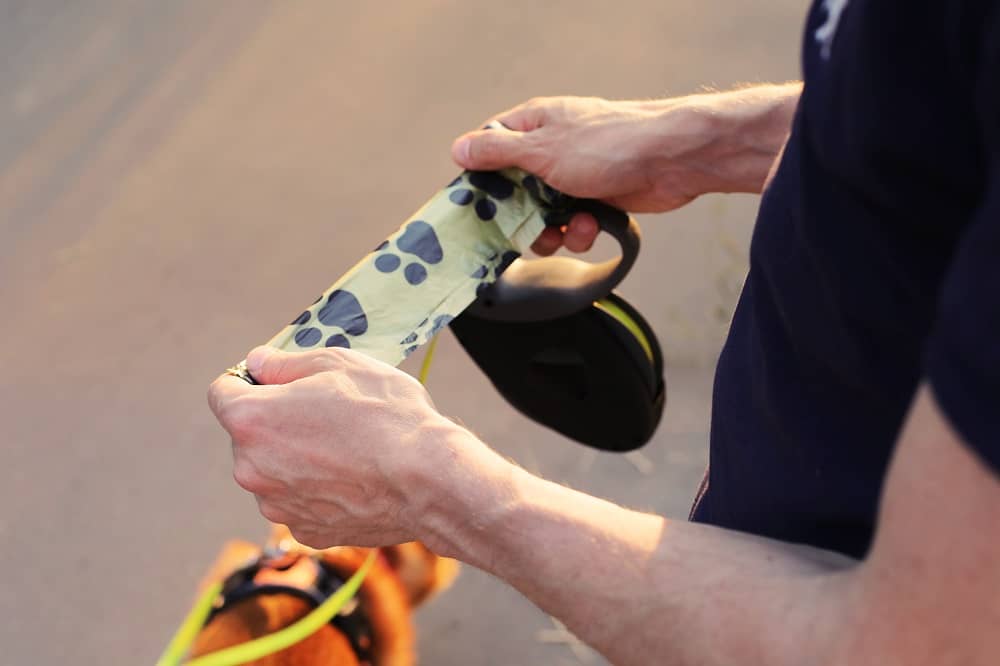As a passionate dog owner and the founder of a dog supply company, I’ve always been intrigued by our furry friends’ impact on the environment. One aspect that often goes unnoticed is the disposal of dog waste. Biodegradable poop bags are touted as a greener alternative, but are they as eco-friendly as they claim?
Biodegradable poop bags are a step towards environmental responsibility for pet owners. These bags are made to break down more quickly than conventional plastic bags, which lessens their long-term effects on the environment and landfills. However, it goes beyond simply discussing the bags themselves; it also involves comprehending their lifecycle and the subtleties of biodegradability.
The conversation around biodegradable poop bags is more than just about disposal; it’s about being a responsible pet owner and an eco-conscious consumer. Let’s dive into the ten essential things you need to know about these bags.
What Makes Poop Bags Biodegradable?
The materials used to make biodegradable poop bags allow them to decompose organically in the environment. Unlike traditional plastic bags, which can take centuries to decompose, biodegradable options are designed to return to the earth more quickly. However, the rate and conditions under which they deteriorate vary significantly. Learn more about biodegradable materials.
How Long Do Biodegradable Poop Bags Take to Decompose?
The decomposition rate of biodegradable poop bags depends on several factors, including material composition and environmental conditions. Generally, these bags can take a few months to a few years to break down completely. This is still a stark contrast to the centuries it takes for regular plastic bags. Discover the decomposition rates.

Are All Biodegradable Bags Created Equal?
Not all biodegradable bags are the same. The term ‘biodegradable’ can be misleading, as it sometimes means the product is environmentally friendly. Some bags have additives that help them break down but still leave microplastics behind. It’s crucial to understand the different types of biodegradable plastics used in these bags. Different types of biodegradable plastics.
What About Compostable Poop Bags?
Compostable poop bags are a subset of biodegradable bags. Still, with a critical difference: they are designed to break down in compost conditions, turning into humus that can benefit the soil. However, not all compost facilities accept pet waste due to health and safety regulations. Composting and pet waste guidelines.
How Does the Use of Biodegradable Bags Impact the Environment?
When biodegradable bags are used, less plastic debris ends up in landfills and the ocean. However, their production also has an environmental cost. It’s about finding a balance and understanding that biodegradable bags are a part of a more extensive eco-friendly approach. Environmental impact of biodegradable bags.
Can Biodegradable Poop Bags Really Solve the Plastic Problem?
While biodegradable poop bags are a step in the right direction, they are not a panacea for the plastic waste problem. Responsible disposal and broader environmental actions are also crucial. These bags are part of a more extensive solution that includes recycling, reducing plastic use, and supporting eco-friendly initiatives. Broader environmental solutions.

What Should Consumers Look for When Choosing Biodegradable Bags?
When choosing biodegradable bags, look for certifications that indicate actual biodegradability and compostability. Understand the materials used and their impact on the environment. Transparency from manufacturers about the product lifecycle is also crucial. Choosing the right biodegradable bags.
How Can Pet Owners Responsibly Dispose of Biodegradable Poop Bags?
Responsible disposal involves more than just using biodegradable bags. It’s essential to consider local waste management policies and composting options. Some areas have designated bins for pet waste, while others may not accept biodegradable bags in composting facilities. Local waste management guidelines.
Is There a Cost Difference Between Biodegradable and Regular Poop Bags?
Biodegradable poop bags can be more expensive than traditional plastic bags. However, the cost reflects the environmental benefits and the more sustainable materials used. Investing in these bags is an investment in the planet’s future.
What Are Some Common Misconceptions About Biodegradable Poop Bags?
Common misconceptions include believing that all biodegradable bags are compostable or break down quickly in any environment. Another misconception is that using these bags alone is enough to be eco-friendly. Education and awareness are crucial in dispelling these myths. Debunking biodegradable bag myths.

Conclusion
In our journey towards a more sustainable future, biodegradable poop bags are a small but significant step. They embody the commitment of pet owners to the environment. It’s about making informed choices and understanding the impact of our actions. Let’s continue to stride towards eco-conscious pet ownership.


